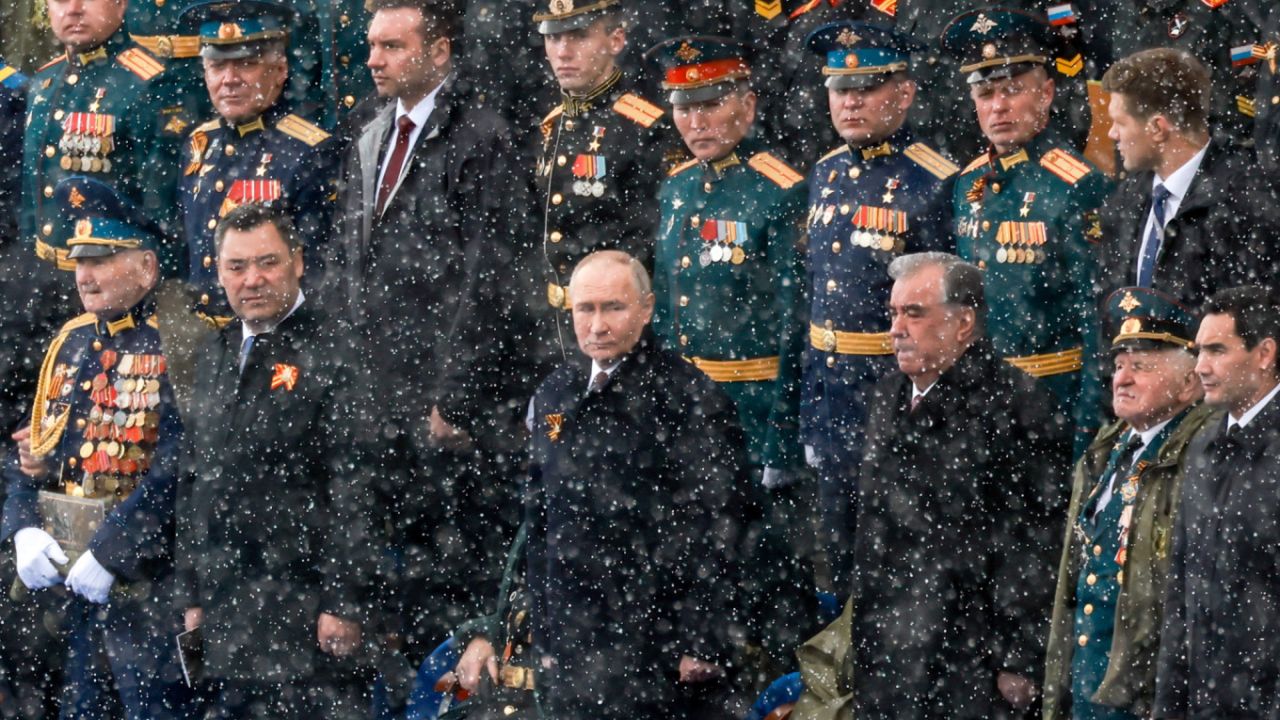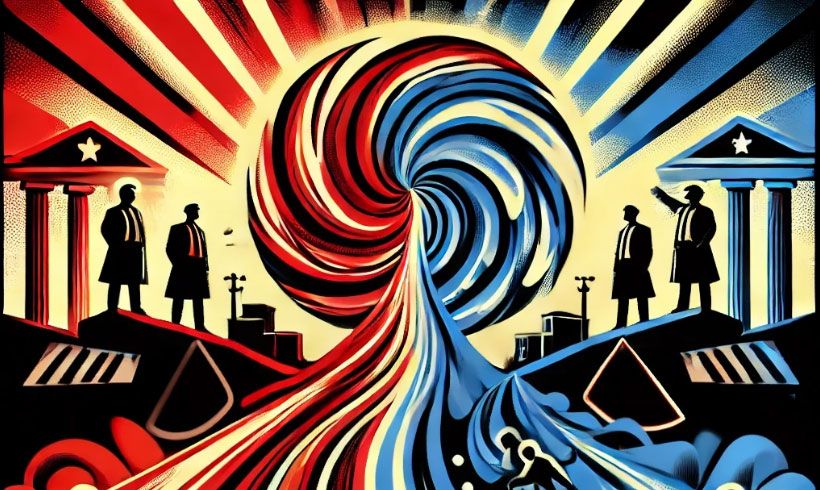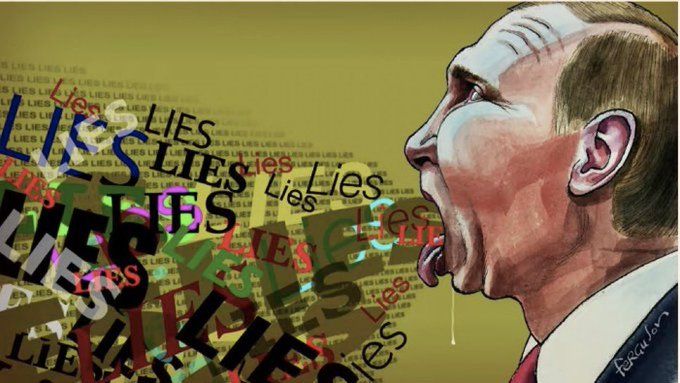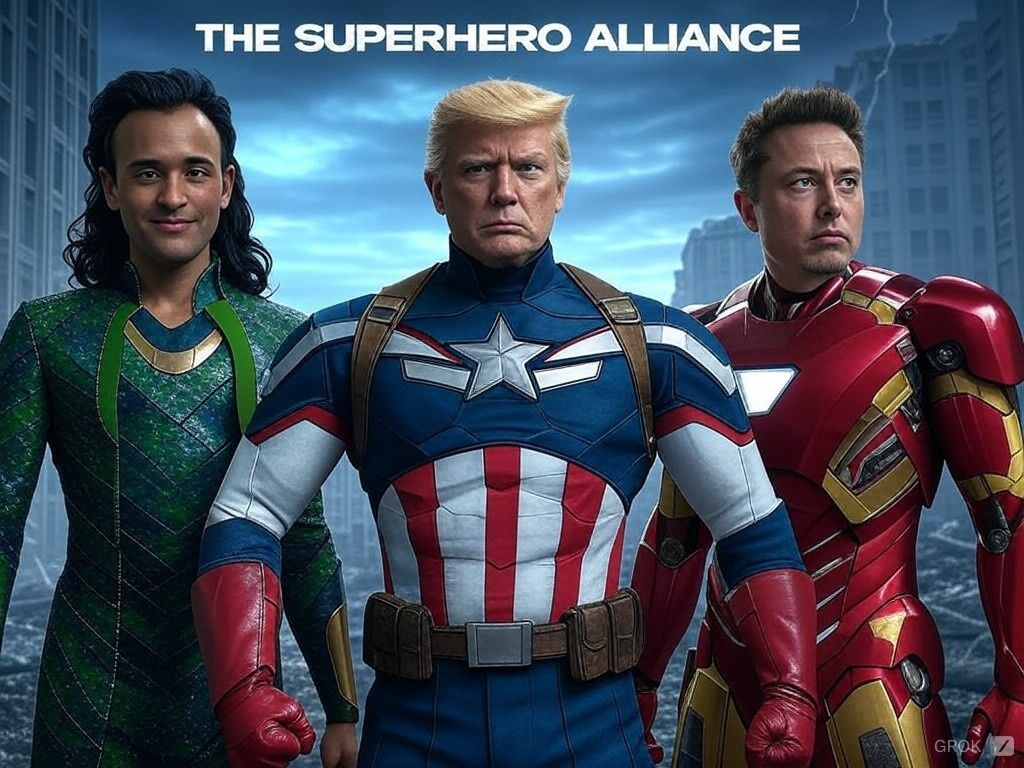“People of Russia, veterans of Russia, comrades, soldiers, quartermasters, officers of the Army, the Navy, the Air Force, admirals, generals, commanders in chief of the special military operations, I salute you all. I salute you all on today to mark the day of our great victory. Today is a day where we remember those who came before us, those who fell on the battlefield and in doing so became immortals, who joined the regiment of immortals, who gave up their lives for our country in the fight against Nazism. And that fight is one which is rearing its head again today. Once again, we see war that is afoot, but we have been pushing back, fighting against international terrorism to protect the people in the Donbas region and to protect our country."
- False Equivalence: Equating the current conflict and the fight against "international terrorism" to the fight against Nazism.
- Argumentum in Terrorem: Framing the current situation as a resurgence of Nazism invokes fear.
“Our only friendships that we can have between the east and west around this world, what we want for the future is a future of peace, a future of stability, not a future of blood. But the elite in the west, they keep talking of their exceptionalism, of how they are different, and they are the ones creating a sense of disruption between our people. They are the ones destroying family values, traditional values that make everyone on this planet human. They are forcing their will on other nations, forcing their rules on others. But it would appear that they have forgotten what Nazism was all about."
- Straw Man Fallacy: Characterizing the Western elite as promoting exceptionalism and disrupting traditional values.
- Ad Hominem: Referring to the Western elite in a derogatory manner.
- Argumentum in Terrorem: Suggesting that the West is destroying traditional values and creating disruption.
"It seems that they have forgotten the scourge that it reeked. They have forgotten all that had to be done to free Europe from Nazism. Nazism, a time when monuments were destroyed. And they appeared to have forgotten exactly what Nazism did back in the day where they were wreaking havoc throughout Europe, and that very act of forgetting is a crime in its own right because in forgetting that time, they’re forgetting the fight that was necessary to be able to rid Europe of that scourge, to rid Europe, the world, of that scourge. Because Nazism was [inaudible 00:03:36] to destroy Russia, to destroy the global order, to stifle the new centers of development that we see around the world."
- Argumentum in Terrorem: Suggesting that forgetting Nazism is a crime and implies dire consequences.
- Petitio Principii: Assuming that the West's actions are equivalent to forgetting the horrors of Nazism without proving it.
"Their impunity is a great tragedy, and that is the very reason why today Ukrainian people are being held hostage. They’re being held hostage following a coup, and they are just puppets in a game that is being played by the west. But we in Russia, we pay homage to the fallen soldiers. We pay homage to the veterans of America, of the United Kingdom. We pay homage to the heroes, the war heroes, from China. We pay homage to the past."
- Straw Man Fallacy: Oversimplifying the situation in Ukraine as purely the result of Western manipulation.
- Appeal to Hypocrisy (Tu Quoque): Pointing out perceived Western faults to justify Russia's actions.
- Petitio Principii: Assuming the Ukrainian people are mere puppets without providing evidence.
"We see international cooperation as a great strength and that holds true both today as it did in the past. But multipolar world that we are seeing is one in which we can have fair opportunity and development for all. What I see in the world is one where we can pay homage to our ancestors, our shared ancestors who fought together, who fought towards a common victory. And we pay homage to that shared victory today. We take a knee to all those who put their life on the line to assure victory. We pay homage to the mothers, wives, sisters, daughters, children, and in their memory, I call for a minute of silence."
- Appeal to Tradition (Argumentum ad Antiquitatem): Using past international cooperation and shared victory to justify current actions.
- Appeal to Authority (Ad Verecundiam): Relying on the authority of historical figures and events to lend weight to the current stance.
"Citizens of Russia, the battles that will forevermore shape our history are sacred, and we understand what it means to be worthy, to be worthy as to what those people who came before us have given us, those people on the front line, those people who are facing the heavy fire. We know what it means to be worthy of their legacy. We know what it means to fight for one’s country. And you, current soldiers, you are worthy. You are fighting for your friends, for your loved ones, for your family. And I know that you feel the great love that we have for you, that they have for you. Everyone, everyone is ready to support you and to give you any that you needed, any prayers that you need."
- Appeal to Pity (Argumentum ad Misericordiam): Invoking the memory of fallen soldiers and their sacrifices to garner emotional support.
- Appeal to Tradition (Argumentum ad Antiquitatem): Emphasizing the legacy of past battles to justify current actions.
"To the Russian people, today we are commemorating the fallen heroes of our nation. And here we are today on the Red Square. And we can remember people such as Dmitry Donskoy, [inaudible 00:08:49], people who fell between 1941 and 1945. We pay homage to them, we also pay homage to the fighters who are part of the special military operations, those people who took arms as part of our partial mobilization, the fighters, representatives from the Ministry of the Interior who are here today to pay homage to you. I pay homage to you, to all you, who defend Russia on the battlefield. All of you who are serving your nation as part of the great patriotic war. Because thanks to you, we can prove that there is nothing stronger than national unity. And for Russia, for our brave armed forces, victory for all."
- Appeal to Tradition (Argumentum ad Antiquitatem): Using historical figures and past battles to justify current actions.
- Appeal to Authority (Ad Verecundiam): Referencing historical figures and events to lend weight to current actions.
- False Dilemma: Presenting national unity and military action as the only paths to victory and strength.
- Oversimplification: Oversimplifying complex international relations and conflicts to promote a singular narrative.






